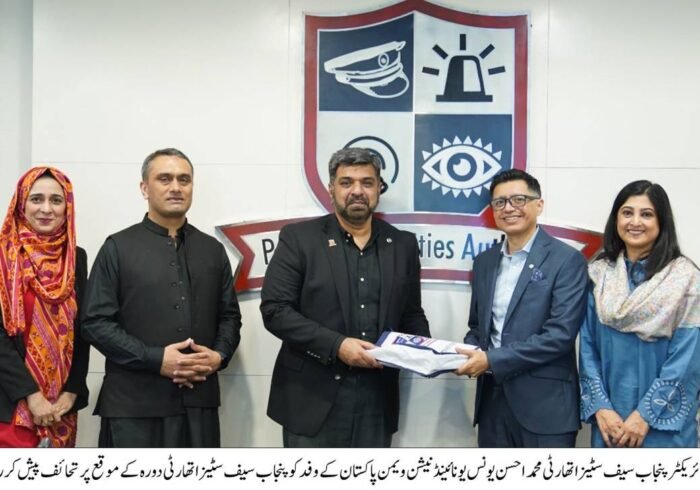Prime Minister Shehbaz Sharif announced that Pakistan has achieved promising macroeconomic indicators and emphasized the need for collective efforts by government officials, investors, exporters, and other stakeholders to further strengthen the economy. He also stressed the implementation of a comprehensive e-governance system to integrate the economy.
The Prime Minister shared these remarks during the inauguration of the Faceless Customs Assessment System (Central Appraising Unit) at South Asia Terminals Pakistan (SAPT) during a one-day visit to Karachi. Senior government officials, including Deputy Prime Minister Ishaq Dar and Finance Minister Muhammad Aurangzeb, attended the event.
Highlighting progress, PM Shehbaz noted a significant rise in exports, which increased by 11%, and an impressive 34% growth in IT exports. He commended the Customs Department for launching the Faceless Customs Assessment System, which reduces interaction between importers and officials, significantly cutting goods declaration processing times from 42 hours to 19 hours during its pilot phase, with a goal of reaching 12 hours.
He suggested a third-party evaluation of the system and announced incentives for customs officials achieving additional recoveries. The Prime Minister also acknowledged that Pakistan has already met its revenue target under commitments with the IMF. Additionally, he emphasized reducing electricity costs to support agriculture and exports.
During a visit to the Pakistan Stock Exchange (PSX), PM Shehbaz expressed his commitment to economic stabilization and sustainable growth. He praised PSX’s outstanding global recognition as one of the top-performing stock markets. The Prime Minister reiterated the importance of structural reforms and progressive taxation, noting that Pakistan’s tax-to-GDP ratio had risen to 10.8%, exceeding the IMF target.
He also highlighted opportunities in agriculture, mining, and manufacturing sectors to attract foreign investment and promote job creation. Stressing transparency in privatization efforts, he pointed to ongoing reforms in state-owned enterprises, such as PIA and Islamabad International Airport.
Deputy Prime Minister Ishaq Dar lauded PSX’s performance, emphasizing the importance of secondary markets for economic resilience. Finance Minister Muhammad Aurangzeb outlined the government’s reforms to reduce inflation, boost exports, and enhance tax and energy systems.
In a healthcare-focused event, PM Shehbaz launched the Aga Khan University (AKU) Manual of Clinical Practice Guidelines, designed to improve healthcare outcomes for over 21 million Pakistanis. This US GRADE-endorsed manual provides evidence-based recommendations tailored to Pakistan’s healthcare landscape.
The Prime Minister commended the AKU’s dedication to medical excellence and its collaboration with government institutions to overcome healthcare challenges, including limited access to quality care in rural areas and the dual burden of communicable and non-communicable diseases.
He highlighted achievements such as the Pakistan Kidney and Liver Institute (PKLI) and its role in providing advanced care and promoting research. Stressing the importance of integrating technology and telemedicine into healthcare, PM Shehbaz encouraged partnerships between visionary institutions like AKU and the public sector to create a stronger healthcare system.
The event also featured a healthcare leadership roundtable, gathering policymakers and stakeholders to discuss advancing healthcare policy and infrastructure. AKU President Dr. Sulaiman Shahabuddin emphasized the collective responsibility of healthcare and the significance of public-private collaboration to transform the country’s healthcare delivery.
These developments underscore the government’s focus on economic progress, transparency, and enhancing public services for a sustainable future.





